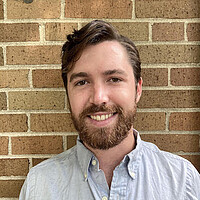Parents, everywhere I turn
Loading...
| Cincinnati
It’s not exactly cool to be living with your parents at age 26.
The last time I lived on my own was for a few months after graduation, when I went to Washington, D.C., for a job. In December 2017, I moved back to my parents’ house in Cincinnati to prepare for a stint in the Peace Corps.
But even after flying 4,000 miles from home to start my service in Senegal, I soon found myself snared in the international conspiracy of parents. I would spend most of the next two years living with a host family. And while I may have swapped my childhood bedroom in the suburbs for a thatched-roof hut in a village, I was still living with parents.
Why We Wrote This
Young adults strive to be independent, but this author finds parents hard to escape – whether his own or host parents in Senegal. Is it love or obligation he feels? Perhaps it’s joy, too?
When the pandemic sent me and every other Peace Corps volunteer back to the States, I was once again back in my old bedroom. I’ve been here ever since.
Earlier this summer, as my biological mother and I caravaned to a family reunion, it felt like a more comfortable version of clambering into taxis, buses, and horse-drawn carts to attend host-family functions in Senegal. The destination this time was not a remote village or the bustling capital of Dakar, but a small cottage on a lake. Still, some things were the same: the second cousins with forgotten names but familiar faces; my inability to come and go on my own; trying to stay off my phone so as to appear polite and attentive; rearranging my schedule to be in town for the get-together in the first place.
That’s not to say I don’t love visiting family; it’s just different when it’s not my idea or on my terms – when you live with parents, host or biological, not a lot is. In Senegal, I’d alert my family to where I’d be, whom I’d be with, and when I’d return, even if I was just going into town for the day. I ate whatever was prepared, whenever it was put in front of me.
And here in Ohio? I may have swapped the village for the suburbs, but parental surveillance remains. No cows chew on the roof during the dry season here, and I have a bit more latitude about what we eat (so long as I prepare it), but each time I leave the house, my parents know where I’m going, whom I’ll be with, and when I’ll be back.
Is it love or obligation? The same question applies to family events:
Rearranging my schedule to be in town for a family reunion to oblige my mom and dad seems no different from showing up out of pure love – at least on the surface. Either way, I’m there, making small talk, catching up with cousins, and discreetly asking my mom, “Who’s that again?” But am I choosing to be here? Or am I here because I can’t really say no? As in Senegal, so in the States: The question is moot. No matter the answer, I’m there.
The irony is, given a choice, I wouldn’t change much. I wouldn’t dare not tell my biological or host parents where I was going. Telling them may make me feel like I don’t have a life, but not telling them is selfish and cold.
In the end, that lack of autonomy is a price I’m willing to pay. Over the past 3 ½ years – whether juggling the demands of Peace Corps service or the challenges of the pandemic – being surrounded by family of one kind or another has been a blessing. The cost of rearranging my schedule, keeping everyone informed, and eating whatever is served doesn’t come close to outweighing the benefit.
Soon I’ll be moving back to Senegal, this time to live in the capital, in an apartment. I’ll no longer be parent-adjacent. When I visit my families, in a village or suburb, some things may still feel constraining. But I’ll finally have more say.
And yet I can’t help thinking that, when I’m alone in my Dakar apartment, I’ll miss that benevolent parental panopticon and the joy it can bring: recounting stories over dinner, seeking advice, telling jokes, or just shooting the breeze.
When I texted my host mom to let her know I was moving back to Senegal, she said she was excited. But before she told me how happy she was, she asked, “How are your mother and father?” An international conspiracy of parents, indeed.






